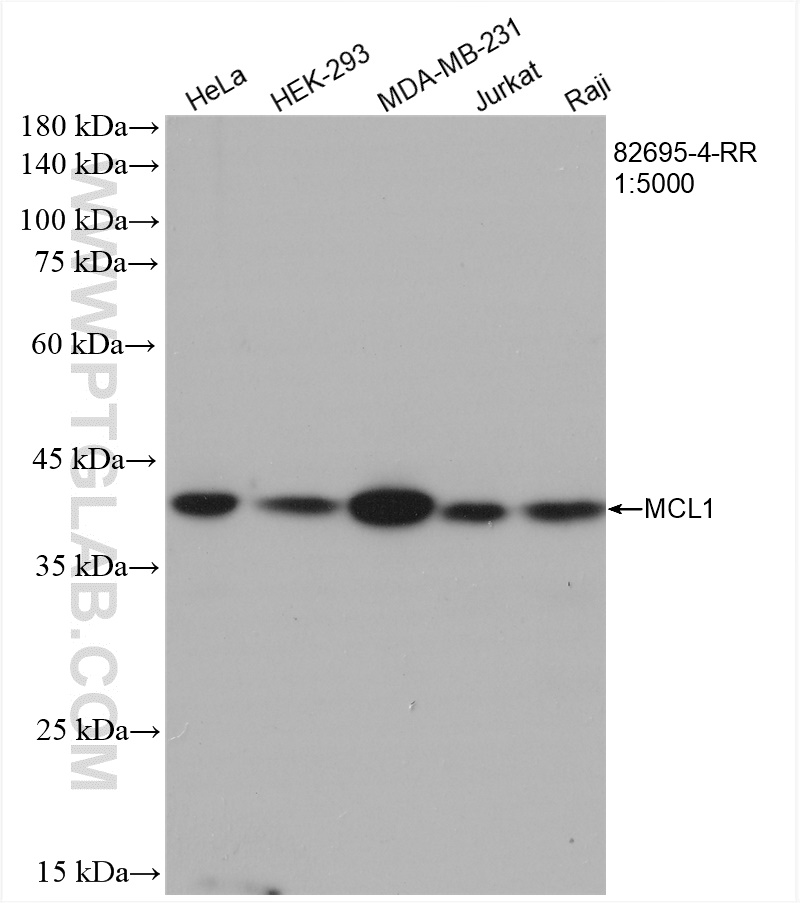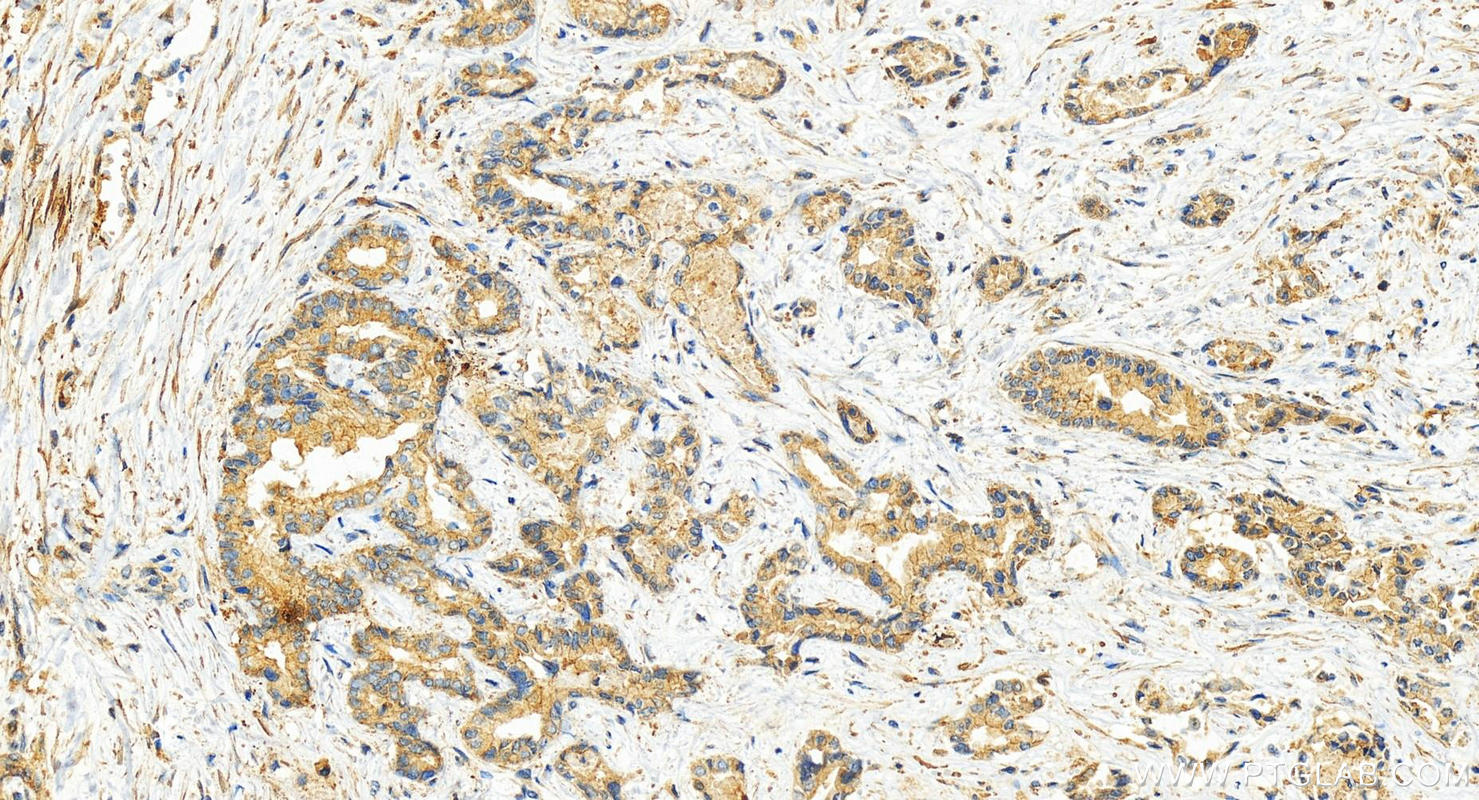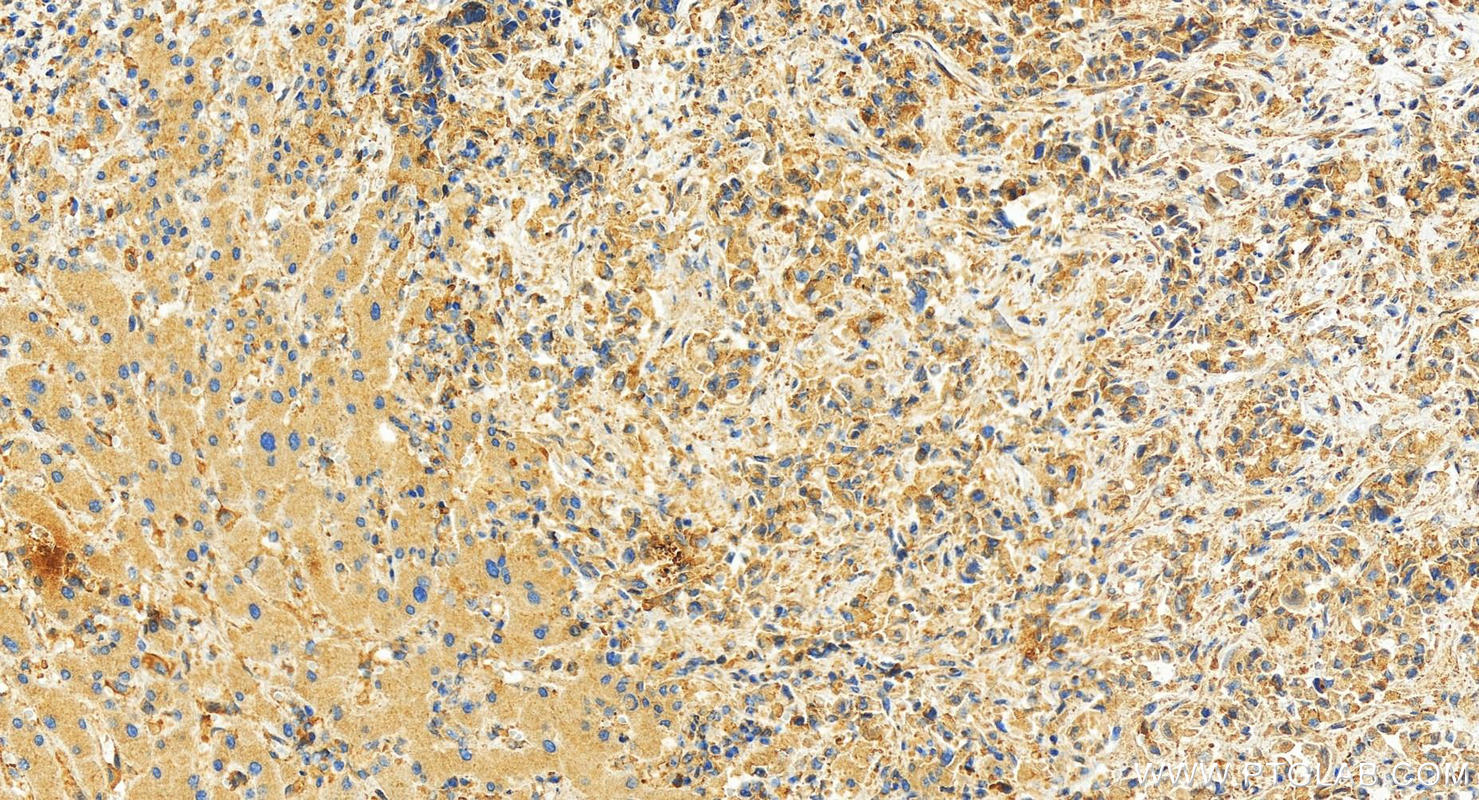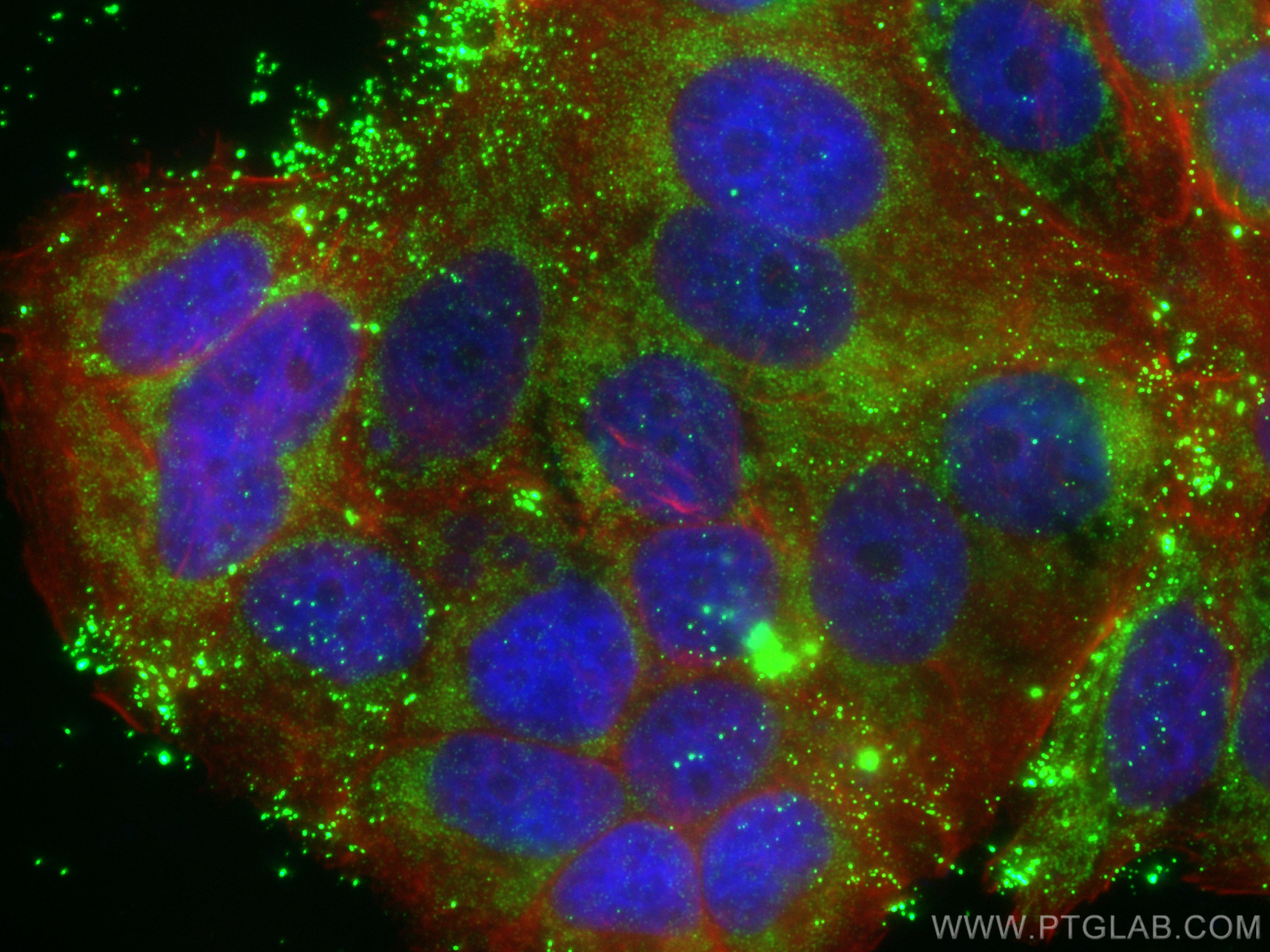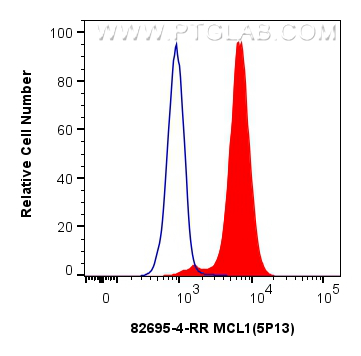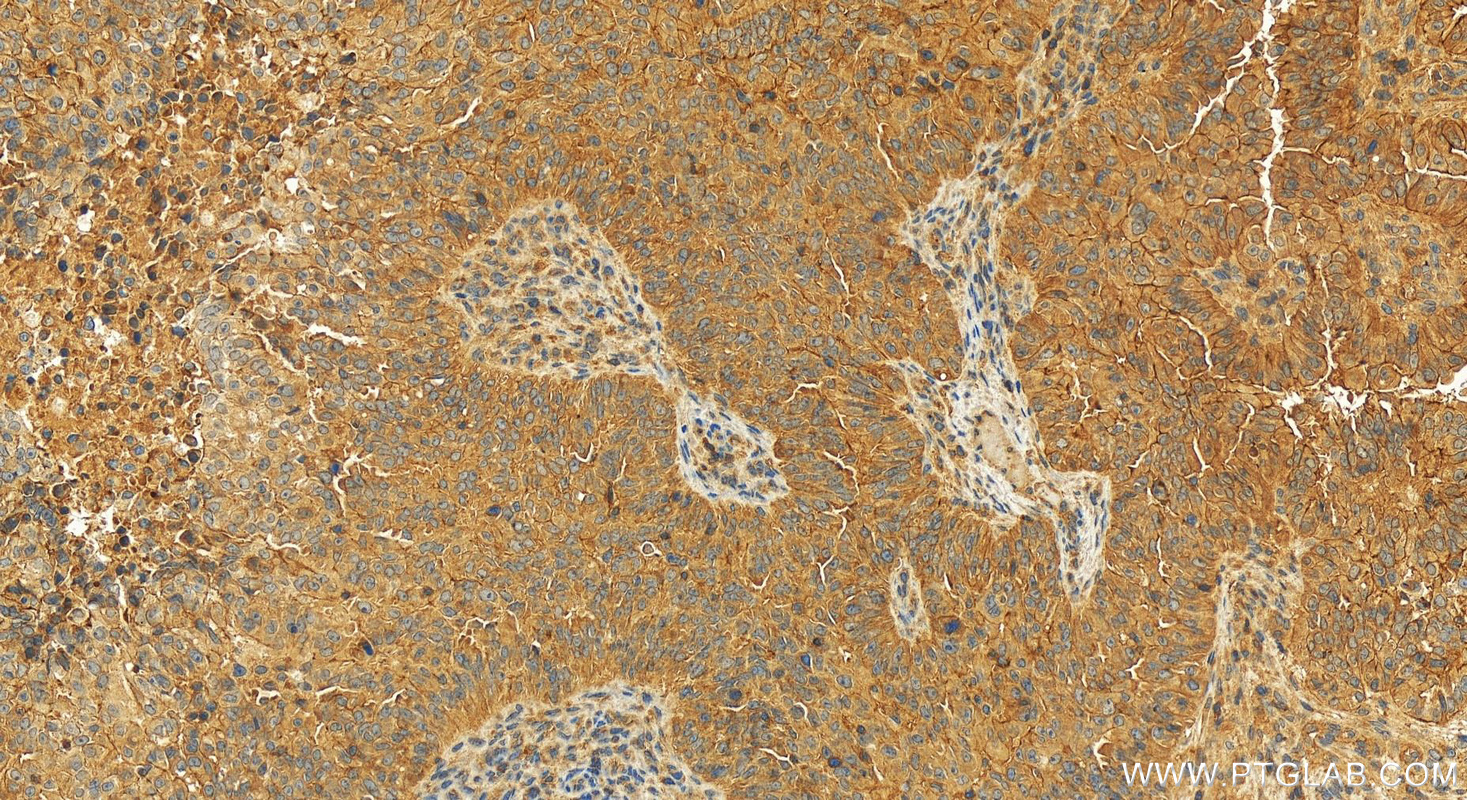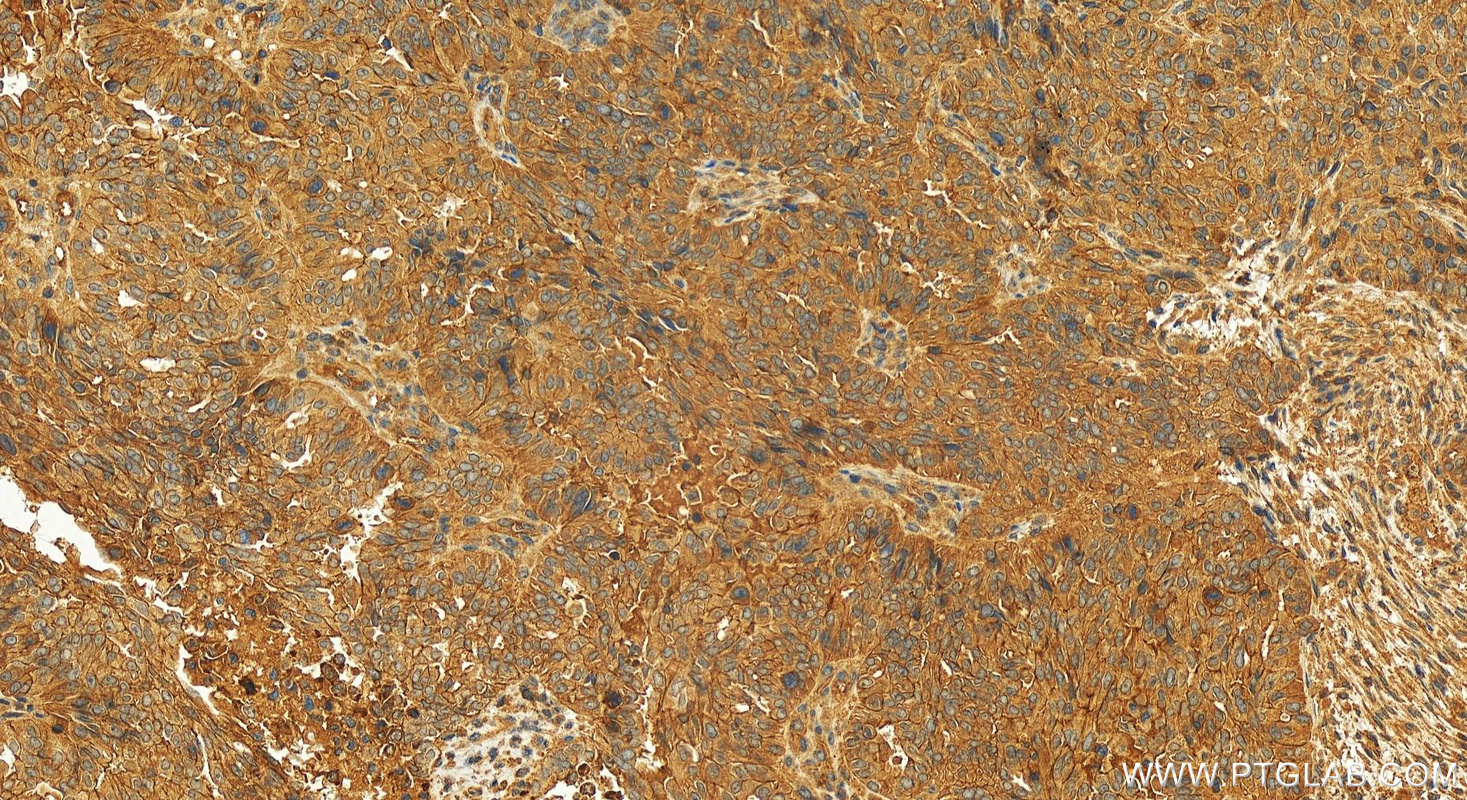验证数据展示
产品信息
82695-4-PBS targets MCL1 in WB, IHC, IF/ICC, FC (Intra), Indirect ELISA applications and shows reactivity with human samples.
| 经测试应用 | WB, IHC, IF/ICC, FC (Intra), Indirect ELISA Application Description |
| 经测试反应性 | human |
| 免疫原 | MCL1 fusion protein Ag10397 种属同源性预测 |
| 宿主/亚型 | Rabbit / IgG |
| 抗体类别 | Recombinant |
| 产品类型 | Antibody |
| 全称 | myeloid cell leukemia sequence 1 (BCL2-related) |
| 别名 | Induced myeloid leukemia cell differentiation protein Mcl-1, EAT, Bcl-2-related protein EAT/mcl1, Bcl-2-like protein 3, Bcl2-L-3 |
| 计算分子量 | 350 aa, 37 kDa |
| 观测分子量 | 40 kDa |
| GenBank蛋白编号 | BC107735 |
| 基因名称 | MCL1 |
| Gene ID (NCBI) | 4170 |
| 偶联类型 | Unconjugated |
| 形式 | Liquid |
| 纯化方式 | Protein A purification |
| UNIPROT ID | Q07820 |
| 储存缓冲液 | PBS only , pH 7.3 |
| 储存条件 | Store at -80°C. The product is shipped with ice packs. Upon receipt, store it immediately at -80°C |
背景介绍
MCL-1 is an anti-apoptotic member of the Bcl-2 family originally isolated from the ML-1 human myeloid leukemia cell line. Similar to BCL2 and BCL2L1, MCL1 can interact with BAX and/or BAK1 to inhibit mitochondria-mediated apoptosis. Mcl-1 is critical for the proliferation and survival of myeloma cells in vitro, and overexpression of Mcl-1 protein in myeloma cells is associated with relapse and short event-free survival in multiple myeloma patients. Recent studies show that MCL-1 is upregulated in numerous haematological and solid tumor malignancies. Therefore, MCL-1 has been suggested as a potential new therapeutic target. MCL-1 can be alternatively spliced into a long form (MCL-1L, 40 kDa) or a short form (MCL-1S, 30 kDa). (PMID: 15467463, PMID: 15147382)
